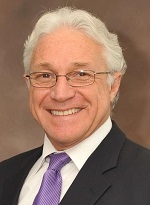Old-school journalism types say that you know you've written a good story when it makes everyone unhappy. Negotiators from the 12 countries making up the Trans-Pacific Partnership (TPP) appear to have taken that to heart when they negotiated the deal terms relating to biologic drugs.
Announced on Monday in Atlanta after a series of marathon negotiating sessions, the biologic drug provision appears to give IP protection for up to 8 years in some cases in some countries, according to Fortune, four years less than the 12-year protection period sought by drug manufacturers, but three years more than the 5 years sought by countries like Australia.
The final language of the deal has yet to be made public, but according to a report in Fortune, countries can choose one of two options: 8 years of full exclusivity or 5 years of data exclusivity, plus three years of semiexclusivity.
What is clear is that no one, other than perhaps the trade reps who made the deal, appears to be happy with the final outcome; not the pharma giants that want to protect major investments and not the countries with national health plans or NGOs that want access to cheaper biosimilars or generics.
The respected global medical NGO Médecins Sans Frontières/Doctors Without Borders said in a statement after the deal was announced that it was "dismayed" by the deal's terms.
"The big losers in the TPP are patients and treatment providers in developing countries," said Judit Rius Sanjuan, U.S. manager and legal policy adviser for MSF's Access Campaign. "Although the text has improved over the initial demands, the TPP will still go down in history as the worst trade agreement for access to medicines in developing countries, which will be forced to change their laws to incorporate abusive intellectual property protections for pharmaceutical companies."
Sanjuan urged the national governments that must now ratify the agreement to "carefully consider before they sign on the dotted line whether this is the direction they want to take on access to affordable medicines and the promotion of biomedical innovation" and said the deal "is a dangerous blueprint for future agreements."
Drug company representative organizations also joined in the debate over the biologic drug provision in the TPP deal, although obviously for different reasons.
The trade association Biotechnology Industry Organization (BIO) said it too was "disappointed" with the TPP pact because it did not support the 12-year exclusive period, which it called a "prerequisite" for companies to invest the millions of dollars required to develop and produce the drugs.
 |
| BIO President and CEO Jim Greenwood |
"While the TPP agreement will not impact the U.S. data protection period, we believe the failure of our Asian-Pacific partners to agree to a similar length of protection is remarkably short-sighted and has the potential to chill global investment and slow development of new breakthrough treatments for suffering patients," said BIO President and CEO Jim Greenwood in a statement.
Perhaps one of the most strident reactions to the drug deal came from activist group Public Citizen, which issued a statement that basically said the deal's negotiators will have blood on their hands because the pact will "contribute to preventable suffering and death."
Peter Maybarduk, director of the group's Access to Medicines program, said that while the deal "fell short of Big Pharma's most extreme demands," it "would expand monopoly protections for the pharmaceutical industry at the expense of people's access to affordable medicines."
Maybarduk added that while the deal "appears to not guarantee Big Pharma the minimum 8-year automatic monopolies that industry has taken for granted," it does include "mechanisms that would help the (U.S. Trade Representative) browbeat countries, now and in the future, to get what Big Pharma wants, and pull countries toward longer monopoly periods."
At the governmental level, both China and Japan weighed in on the newly agreed pact, with Japanese Prime Minister Shinzo Abe saying on Tuesday he hoped China would consider joining the 12-nation bloc, according to a report by Voice of America. China said it had no plans at the moment to join the group but was "open to any mechanism that follows the rules of the World Trade Organization and can boost the economic integration" of the region, according to a report by the state-run news agency Xinhua.
In India, officials there are concerned about how the new agreement will affect the country's huge drug industry, specifically its exports to ASEAN, according to a report in The Hindu newspaper.
- here's a story from Fortune, one from Voice of America, one from Xinhua and one from The Hindu
- and a statement and summary from the office of the U.S. Trade Representative
- as well as a statement from MSF, one from Public Citizen and one from BIO